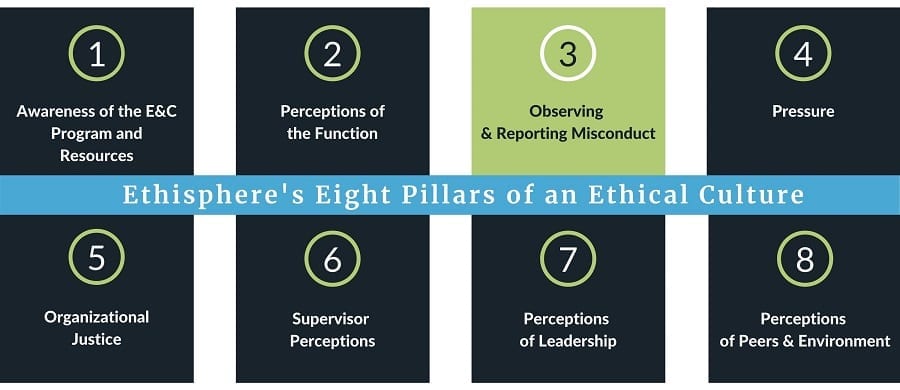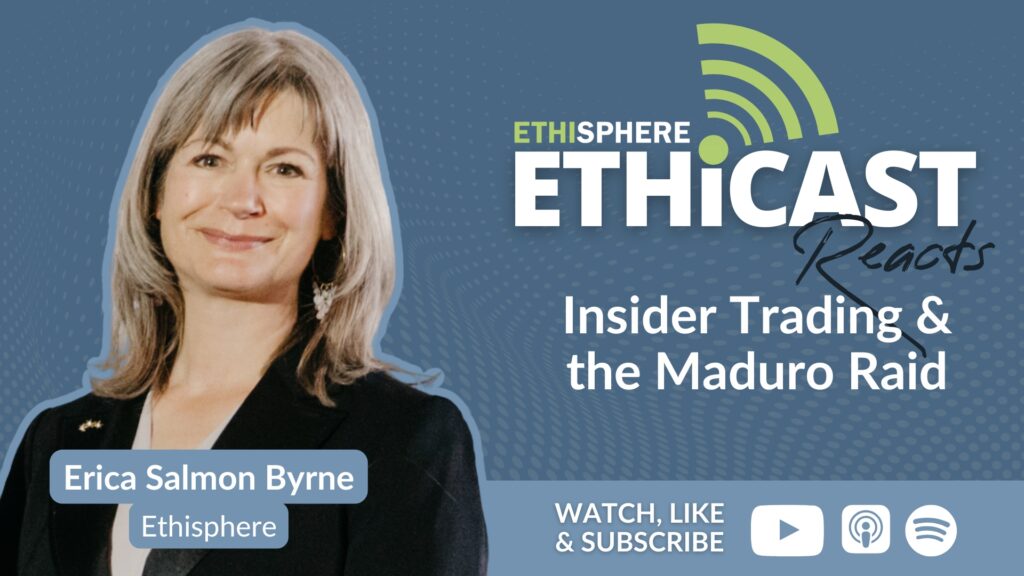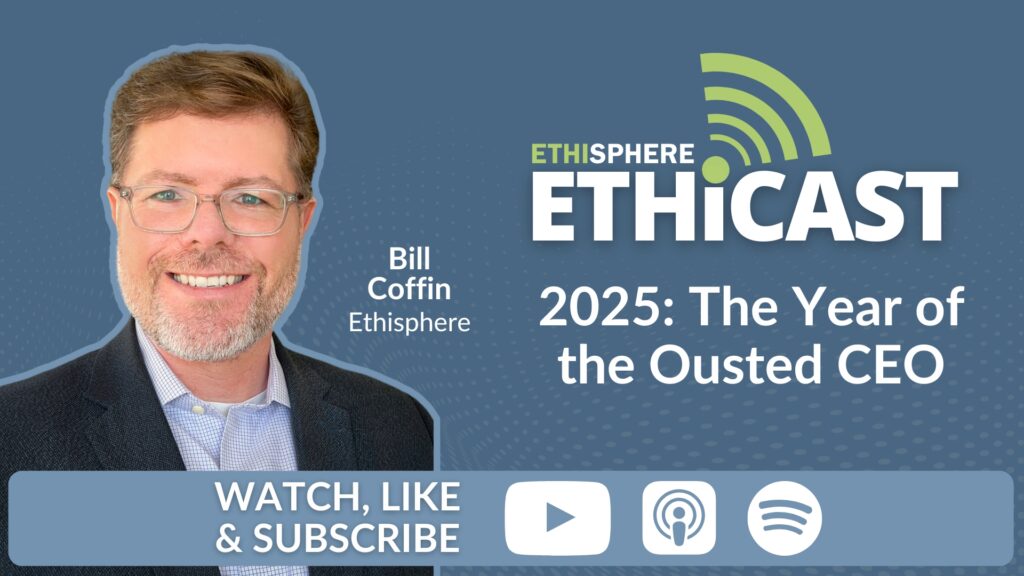
8 Ways to Elevate Ethical Culture: Observing and Reporting Misconduct

AUTHOR:
Erica Salmon Byrne, J.D.
Executive Vice President and Chair of the Business Ethics Leadership Alliance (BELA)
In this series, we share insights into the Eight Pillars that make up a robust ethical culture. Our Eight Pillars seek to get at the key metrics of a strong ethical culture: Do your employees understand what is expected of them? Do they know where to go if they have questions? And, if they need help or have made a mistake, do they trust the process enough to ask for it?
In our previous post, we discussed the first of the eight markers: Do your employees understand what is expected of them? In the following post, we covered the second pillar: How employees perceive the effectiveness of ethics and compliance communications and training?
In this post, we focus on the culture of observing and reporting misconduct.

PILLAR THREE:
Observing and Reporting Misconduct
What we aim to measure:
This section addresses several important challenges: What is the strength of your organization’s “speak-up” culture? Do obstacles exist that prevent employees from stepping forward? If so, what might they be?
Types of questions we ask:
- If I were to observe misconduct, I would be willing to report it.
- Over the past 12 months, have you observed unethical behavior or business misconduct at the Company?
- I reported the unethical behavior or business misconduct that I observed.
- The Company has a policy that prohibits retaliation against employees who report misconduct or participate in an investigation.
Why it matters:
Mitigating people-created risk is key to the success of any Ethics & Compliance program. Establishing a culture where employees are comfortable raising concerns about suspected misconduct (intentional or accidental) is critical in that endeavor. In almost every instance of consequential misconduct, “somebody knew what was going on,” but many don’t speak up for a number of reasons, including fear of reprisal.
What the data says:
For the companies we work with, this pillar often offers significant opportunities to improve, particularly when it comes to levels of comfort in reporting observed misconduct. The data shows that:
92 percent of participants indicate a willingness to report misconduct if they were to observe it, hypothetically speaking, yet just 52 percent of employees who observed misconduct in the past 12 months reported the matter; with
60 percent of those individuals who did report a concern raised it with their immediate manager.
76 percent of participants believe that their company enforces its non-retaliation policy while 85 percent believe their manager complies with the policy.
The key takeaway from these statistics is that employees inherently believe they’d do right thing if misconduct occurs, however when faced with misconduct, many did not. As a result, it is incumbent upon the organization to foster a culture that allows employees to act on the instinct of ‘doing the right thing.’ Given that employees most often report to managers, it is vital to ensure that managers are properly equipped to navigate how to respond when a direct report raises a concern, who to go to for help, and how to prevent retaliation.
How Ethisphere clients have used the data/insights:
In our deep dives of the data, we have been able to identify micro-cultures that exist across an organization. These micro-cultures are heavily influenced by regional and functional differences.
Taking this data and cross-referencing it with demographic data, we are able to establish context for the strength of the “speak-up” culture. These insights enable organizations to identify opportunities for targeted manager training and functional communications to ensure the central ethos of the organization permeates all micro-cultures and that all employees feel comfortable using their voice.
Expert tips for your program effectiveness:
- Leverage manager toolkits and discussion guides that encourage discussion at the local levels about the responsibility every employee has to protect the organization and ensure business is conducted properly.
- Proactively set expectations for the reporting and investigation processes for all employees about what to expect if they unfortunately find themselves in a position where they’ve observed misconduct.
- Publicize the investigator code of conduct and consistently communicate the company’s non-retaliation policy (and enforcement protocols).
Have questions about ethical culture? Schedule time to talk with an Ethisphere expert, or subscribe to our “Culture Corner” newsletter to stay up-to-date on ever-changing culture trends and data.


